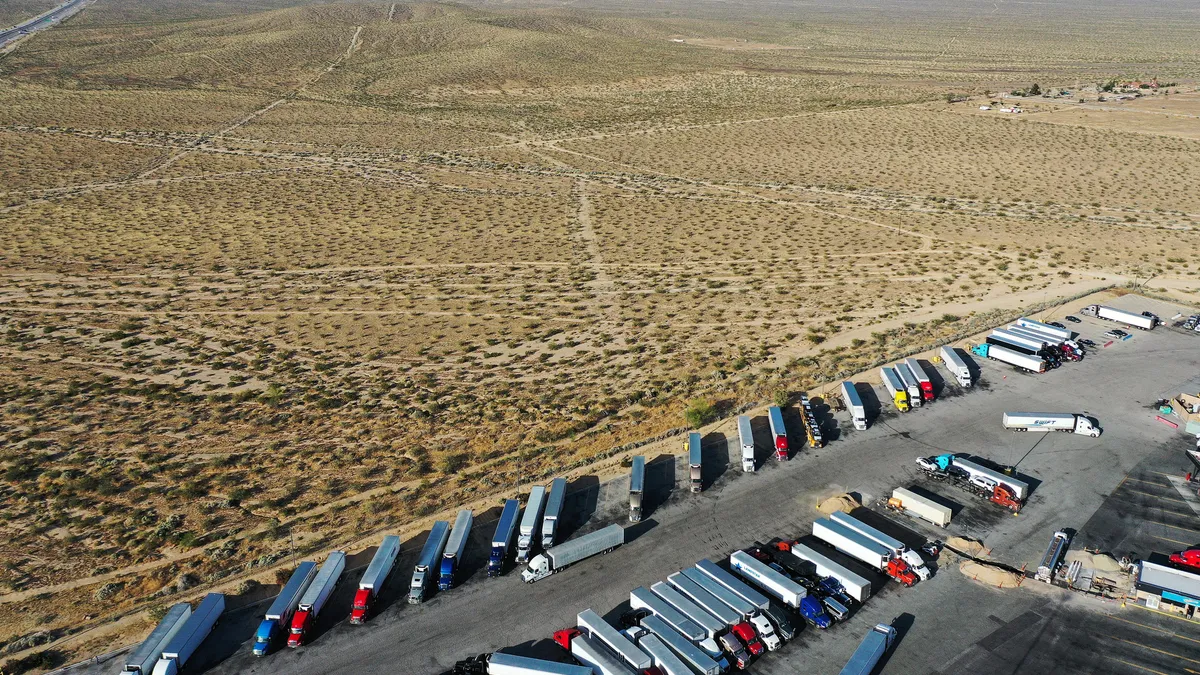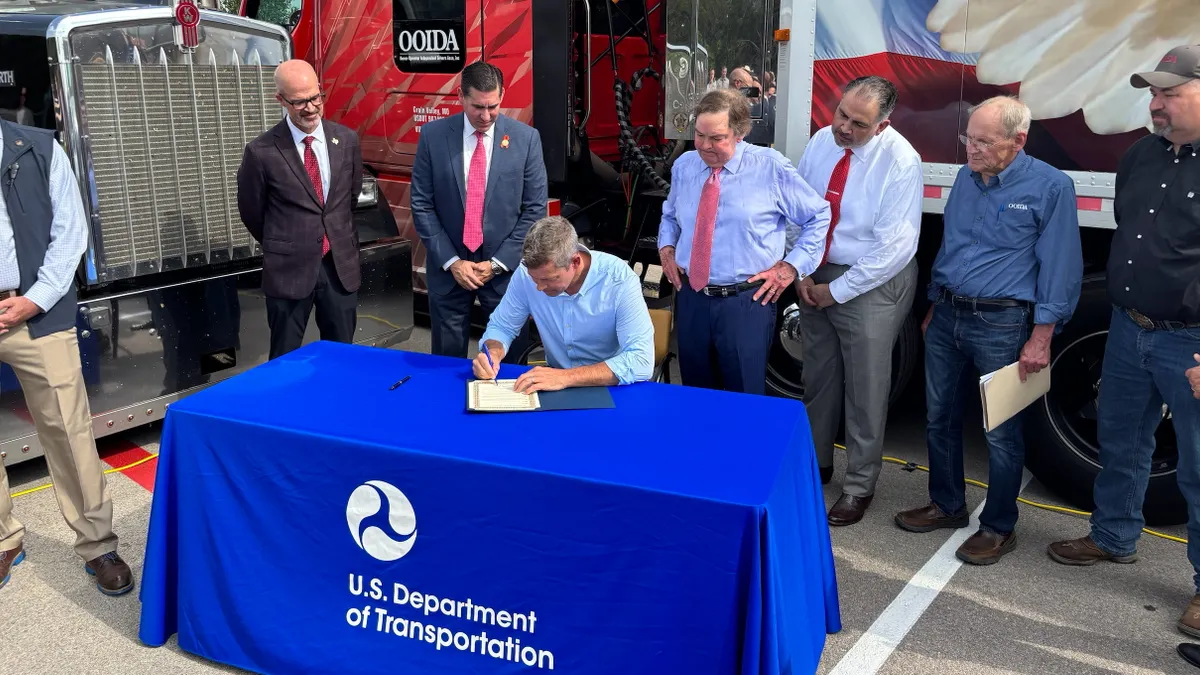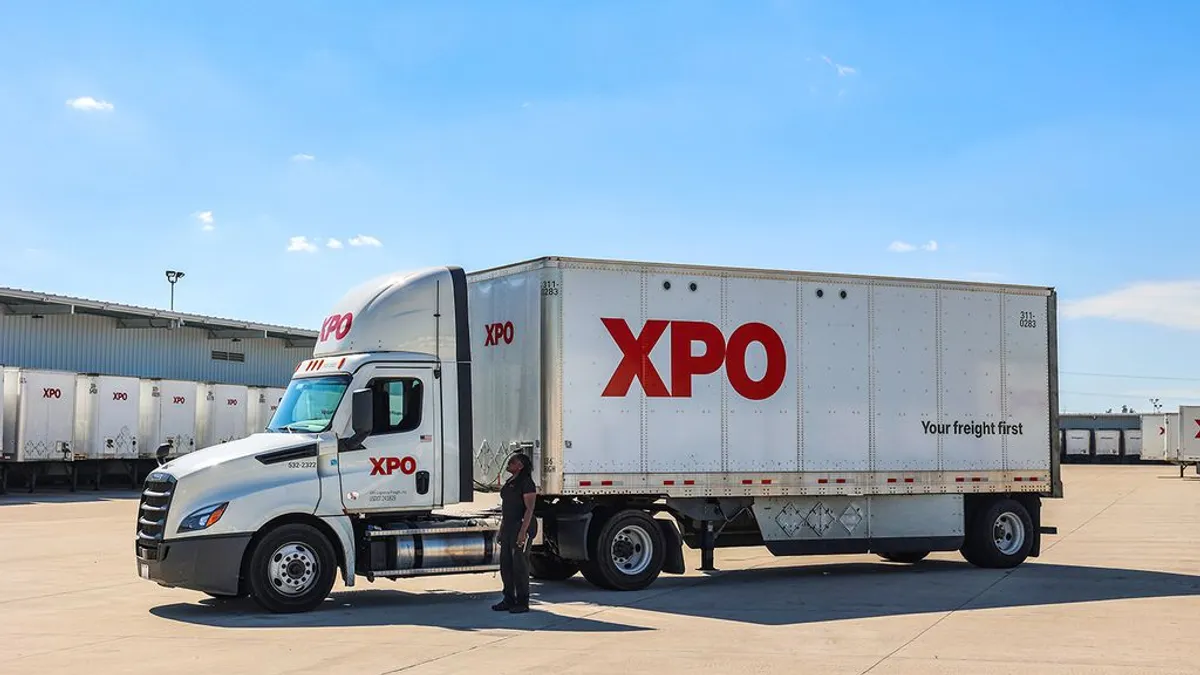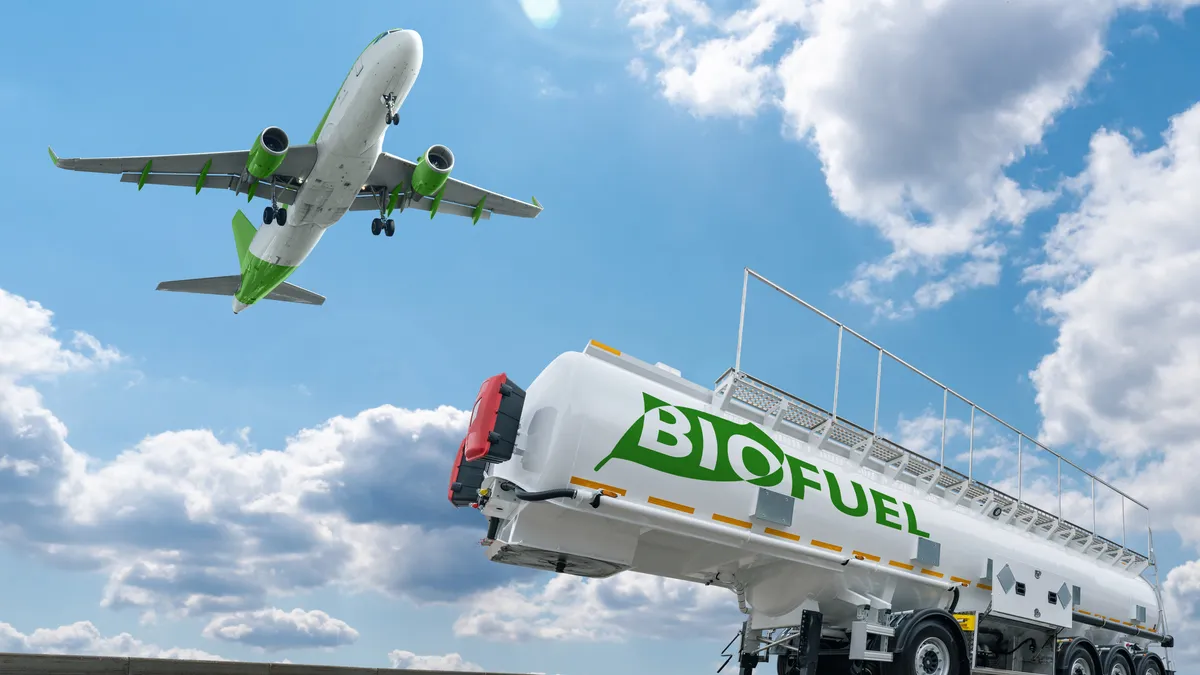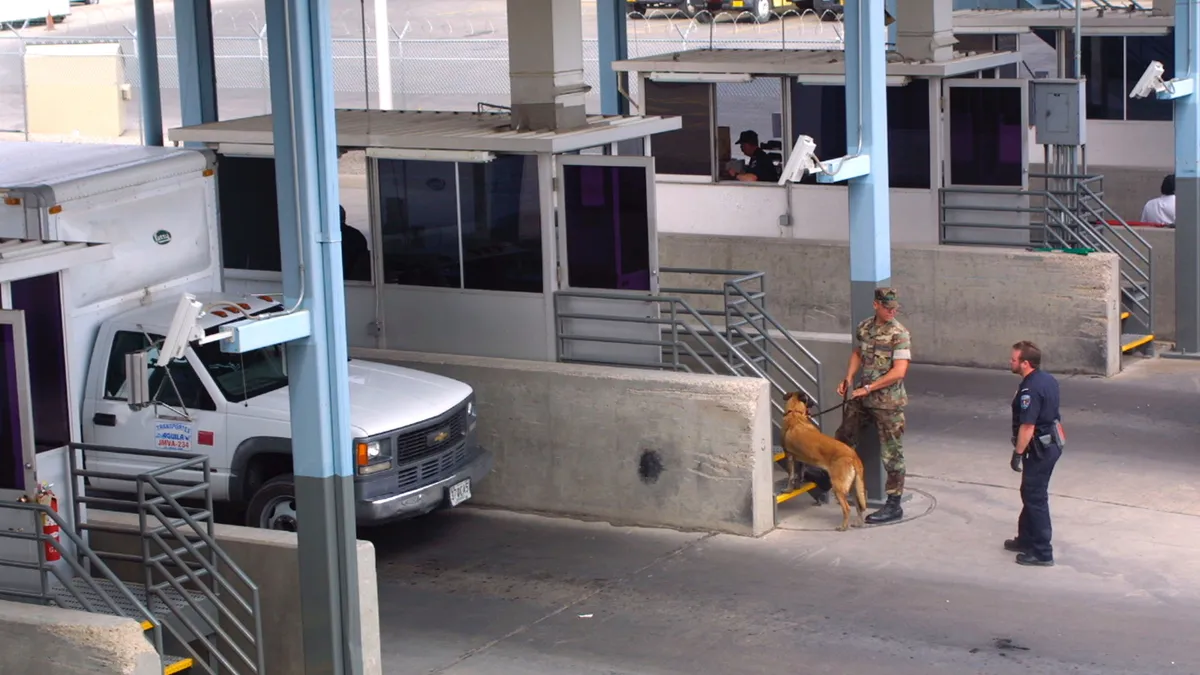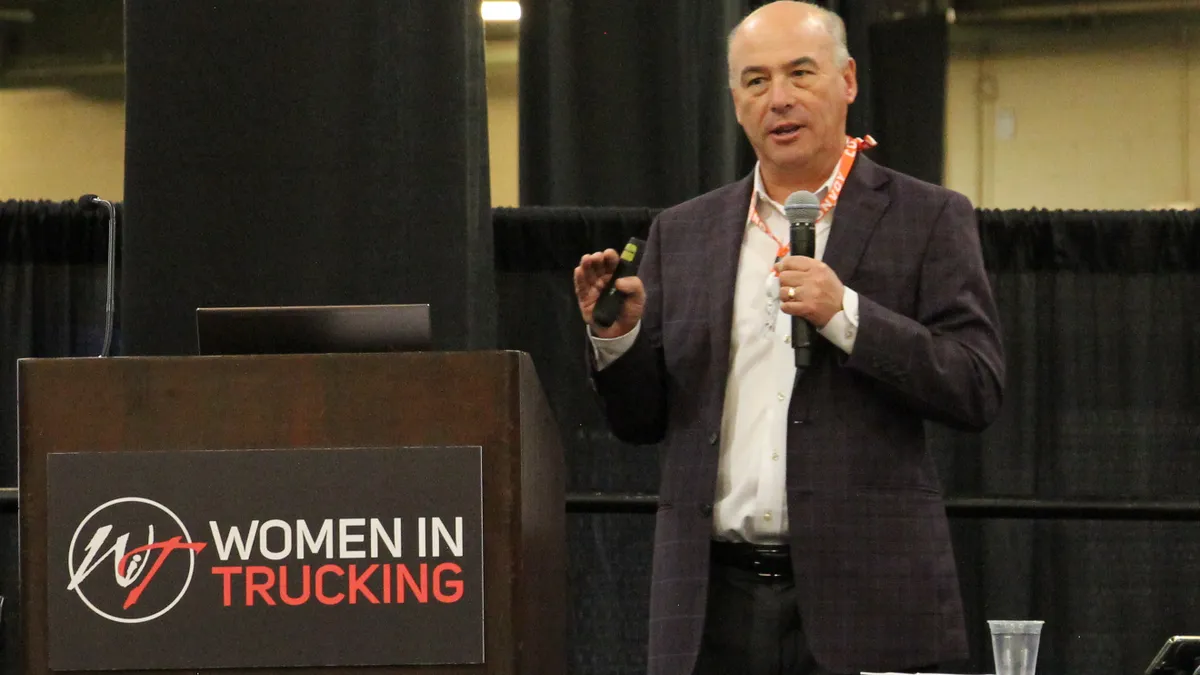Truck parking capacity continues to be strained in the face of elevated freight demand due in part to limited funding and zoning challenges. The crunch is forcing the industry to explore creative solutions and sparking interest among real estate investors.
Truck drivers have highlighted the lack of safe and reliable truck parking for years. It was tied with driver compensation as drivers' number one concern last year and consistently ranks in the top three, according to the American Transportation Research Institute. It's also the tenth year that a lack of available parking has made the trucking industry's top 10 list of concerns.
"Ultimately, the pervasive truck parking shortage can be explained with simple math—there are about 3.5 million truck drivers in the United States and approximately 313,000 truck parking spaces nationally; for every 11 drivers, there is one truck parking space," the American Trucking Associations and the Owner-Operator Independent Drivers Association wrote in a Feb. 18 joint letter to U.S. Transportation Secretary Pete Buttigieg.
The rapid growth of e-commerce is adding further urgency to address the shortfall, said Cary Goldman, managing partner and founder of Timber Hill Group, a private equity firm specializing in logistics real estate acquisition and development.
Trucking is an essential ingredient to fulfill the delivery expectations of online shoppers, who flocked to e-commerce sites when the COVID-19 pandemic took hold. U.S. retail e-commerce sales grew from $156.4 million in Q4 2019 — the year drivers ranked parking as their number three concern — to a preliminary estimate of $218.5 million in Q4 2021, according to the Department of Commerce.
"Wanting to do two-day e-commerce shipping absolutely has a multiplier effect on the need for these parking spaces," Goldman said.
Investors eye truck parking
Timber Hill Group focuses on fleet parking rather than the daily and hourly truck stop model employed by the likes of Love's and TravelCenters of America. Timber's model is designed for truck drivers living in close proximity to the property who "constantly have to swap out an automobile for their truck," Goldman said. Tenants may be large private fleet operators such as Amazon and Home Depot who occupy 100 spaces out of 700 on a property, or an owner-operator who needs only one space.
"There's real capital behind this niche. That wasn't the case five years ago when I started buying these things," Goldman said, referring to truck parking real estate.
Industrial outdoor storage properties, which truck parking facilities fall under, have piqued the interest of real estate firms as trucking demand has grown. Stan Johnson Co. found in 2021 that the sector reported a lower average vacancy rate (2% to 3.5%) than the industrial real estate market's average (5% to 6%), along with "rapidly increasing rental rates," according to a post. Tenants in the sector continue to benefit from a boom in both e-commerce and construction.
"This creates a 'stickiness' that more traditional industrial facilities sometimes lack and helps keep tenants at their current locations," the post reads.
Truck parking supply is particularly tight throughout major freight corridors and around traffic-clogged cities, said David Heller, vice president of government affairs for the Truckload Carriers Association.
"I can imagine Montana might not have the parking shortage problems that, say, California might have or anywhere on the East Coast east of the Mississippi [River]," Heller said.
Charlotte, Dallas-Fort Worth markets crunched for truck parking
Locations with easy access to growing cities, the interstate and intermodal facilities or ports are ideal locations for truck parking properties, Goldman said. Timber Hill lists the parking-crunched cities of Dallas-Fort Worth, Atlanta and Jacksonville among its target markets.
Embark Trucks has launched a large-scale partnership with industrial real estate firm Alterra Property Group to avoid property hurdles. Prior to its work with Alterra, securing parking spaces had been "a time consuming process," the self-driving truck program's Chief Commercial Officer Sam Abidi said in an email.
Through the partnership announced in February, Alterra will help Embark identify, secure and develop sites for transfer points, in which local drivers drop off freight for Embark to move autonomously between points. Alterra has already "been invaluable in driving the site acquisition process," Adibi said, and its existing portfolio, expertise and capital will help Embark bolster its network in Sun Belt markets.
As White House responds, obstacles loom
When parking is limited, truck drivers have to stop in less-than-ideal areas in order to stay compliant with hours of service regulations, which can compromise safety.
"As you're driving through some of these freight corridors, you start seeing trucks that are parking on onramps or offramps," Heller said. "You can obviously say that's probably not the best place to park the truck, and the reason is there's just not adequate parking available for your average 53-foot trailer and the sleeper component that goes into it."
The long-festering issue has gained the attention of the White House. The Bipartisan Infrastructure Law provides funding in at least five programs for states to address the lack of parking with, according to a White House fact sheet. It also requires states to include an analysis of truck parking needs in their freight plans.
"This is a very important issue, and if you talk with any truck driver, it is not only an issue of convenience, it is an issue of safety," Buttigieg told the Senate Environment and Public Works Committee in March.
But Heller questions if states will dedicate enough discretionary funds toward expanded truck parking when improving infrastructure such as roads and bridges is also a high priority. Dedicated funding that could go toward the problem would "show the seriousness of the issue," Heller added.
Zoning laws also need to be considered. Industrial outdoor storage facilities in general have seen little new development, as it's difficult to gain approval in the many communities that don't bring in many new residents, according to Stan Johnson Co.
"Everybody says, 'Not in my backyard. I don't want to have truck parking in my town. I don't want a 1 million square foot distribution box in my town. But I want my one- or two-day delivery,'" Goldman said.



